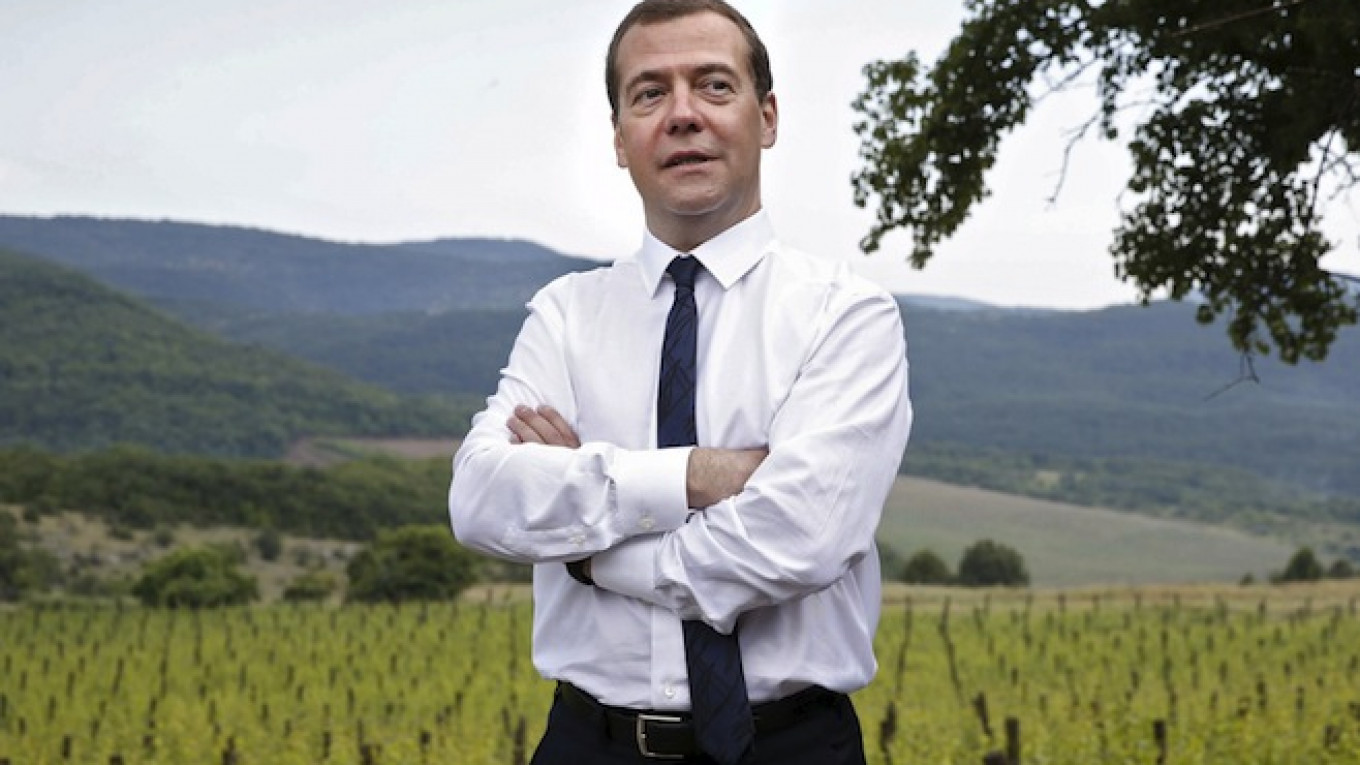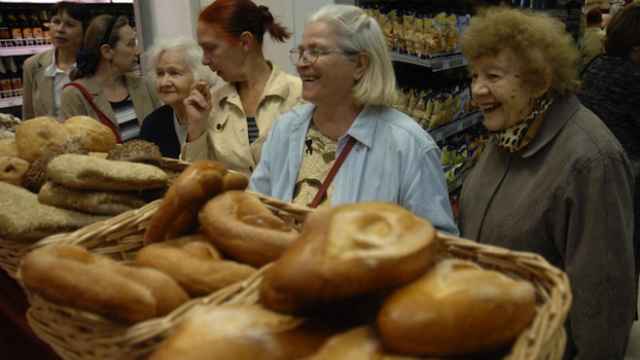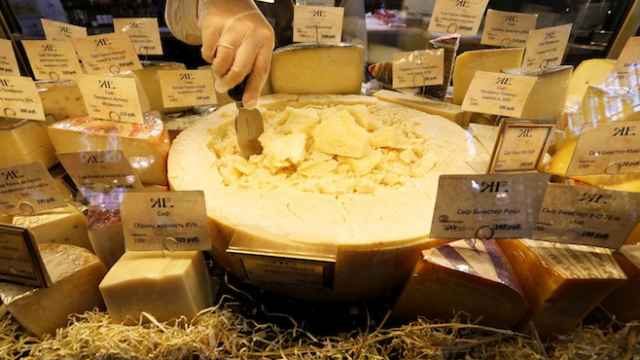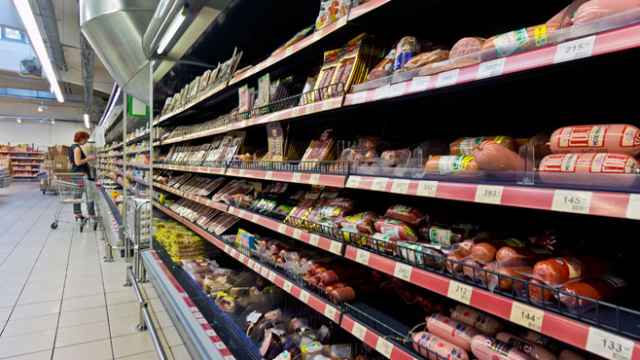Russian Prime Minister Dmitry Medvedev said on Thursday a list of banned products from Western countries could be changed according to the state of relations with the European Union and other countries.
Medvedev told a government meeting he had approved an order by President Vladimir Putin to extend a ban on food imports from the West by one year, a response to the EU's decision to extend sanctions on Russia over its role in the Ukraine crisis.
The list of banned products, which include fruit, vegetables, meat, poultry, fish, milk and dairy products, were so far the same as in the earlier ban.
Some Russian officials have said the list could be expanded to include flowers, chocolates and tinned fish.
"This list is of course not a constant. It can be changed depending on a number of things, including how our relations develop with our European partners and partners in a number of other countries," Medvedev told a government meeting.
Russia has said it would respond to Western sanctions imposed over Moscow's role in the Ukraine crisis in a "symmetrical" way, widening its so-called counter-sanctions only if the West extends its own.
Putin has praised the import ban for spurring agricultural growth and says Russia is weathering other sanctions that have all but cut off banks and companies from global financial markets and oil companies from some cooperation.
A Message from The Moscow Times:
Dear readers,
We are facing unprecedented challenges. Russia's Prosecutor General's Office has designated The Moscow Times as an "undesirable" organization, criminalizing our work and putting our staff at risk of prosecution. This follows our earlier unjust labeling as a "foreign agent."
These actions are direct attempts to silence independent journalism in Russia. The authorities claim our work "discredits the decisions of the Russian leadership." We see things differently: we strive to provide accurate, unbiased reporting on Russia.
We, the journalists of The Moscow Times, refuse to be silenced. But to continue our work, we need your help.
Your support, no matter how small, makes a world of difference. If you can, please support us monthly starting from just $2. It's quick to set up, and every contribution makes a significant impact.
By supporting The Moscow Times, you're defending open, independent journalism in the face of repression. Thank you for standing with us.
Remind me later.






